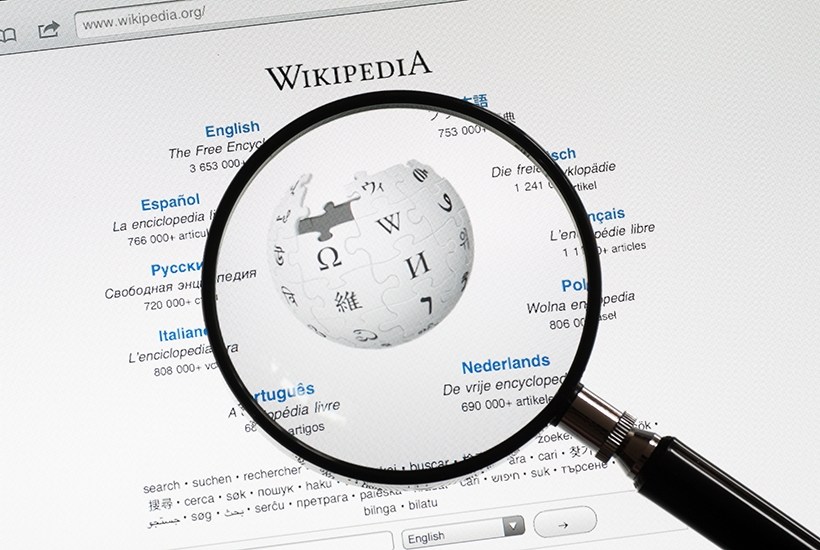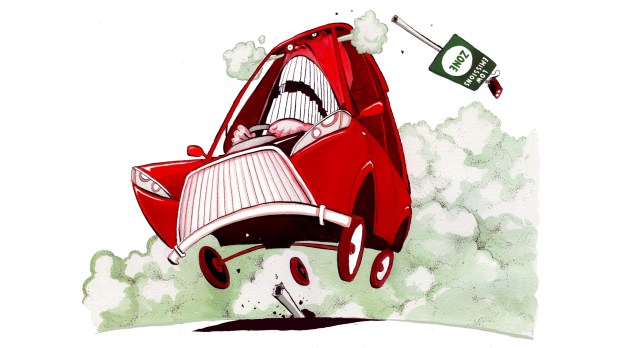A couple of weeks ago Newsweek ran an article attacking Elon Musk, the CEO of Tesla, for engaging in a friendly Twitter exchange with me about the coronavirus pandemic. According to the article, I was a ‘eugenics advocate’. How could the apparently respectable industrial designer sully himself in this way? Didn’t he realise I was Britain’s answer to Dr Mengele?
The claim that I’m a ‘eugenics advocate’ isn’t true, obviously. It’s based on a deliberate misreading of an article I wrote in which I said that if it ever becomes possible for couples to cherry-pick embryos in a genetics lab according to which ones are likely to have the highest IQ, that technology should be made available for free on the NHS because otherwise it will enable the rich to give their children an even greater competitive advantage. If ‘eugenics’ is forced sterilisation, what I was proposing was the opposite — free IVF for the poor. But that hasn’t stopped numerous left-wing journalists claiming I’m some kind of neo-Nazi, including Polly Toynbee, who wrote in 2018: ‘With his views on eugenics, why does Toby Young still have a job in education?’ Shortly afterwards, I didn’t.
I’ve tried to set the record straight, but it’s a smear that just won’t die because it sits right at the top of my Wikipedia page. For lazy journalists, Wikipedia is the only thing they read when ‘researching’ an article. And why not? If they’re going to rely on one source, it might as well be the world’s largest encyclopaedia. It prides itself on its ‘neutral point of view’, which it defines as attempting to present ideas and facts ‘fairly, proportionately, and, as far as possible, without editorial bias’. It’s one of the websites scientists access the most and, according to an article in the Atlantic, 50 per cent of doctors use it regularly. It’s a trusted source of information, much like the BBC.
But according to a recent article by two academics in the Critic, Wikipedia has a strong left-wing bias — which might explain why the page about me reads as if it’s been written by Owen Jones. In addition to referring to me as ‘far right’, it says I’m guilty of composing ‘misogynistic’ and ‘homophobic’ tweets, points out I’m in Jeffrey Epstein’s ‘little black book’, accuses me of being a drug dealer and says my unfavourable view of the government’s handling of the pandemic ‘contrasts with scientific recommendations for lockdown policy in the UK’. All of these claims are at least as contentious as the ‘eugenicist’ allegation, but I know from friends who have tried to set the record straight that they are immediately overruled by editors who then faithfully restore the smears.
I was initially puzzled by this, because Wikipedia’s ‘verifiability’ policy requires that all content on the site be based on ‘reliable, independent, published sources with a reputation for fact-checking and accuracy’. But as the two academics point out, of the 36 sources which have been ‘deprecated’, which means contributors aren’t allowed to use them, only one is left-of-centre, while 16 are right-of-centre, including the Mail. Wikipedia’s administrators make no secret of their left-wing leanings. In a personal essay on the site, one announced that ‘believing that Trump is a good president indicates that you are probably not competent to edit Wikipedia’ and later said about Black Lives Matter: ‘You can be one of three things: ally, enemy, or collaborator. Be an ally.’ In expressing that view, he is aligned with the Wikimedia Foundation, the non-profit organisation that runs Wikipedia. It published a statement in June endorsing the goals of BLM: ‘On these issues, there is no neutral stance. To stay silent is to endorse the violence of history and power; yesterday, today, and tomorrow. It is well past time for racial justice in America and beyond.’
The academics have analysed disputes between Wikipedia contributors in several politically charged areas and found that in every case the administrators have more often ruled in favour of left-wing editors than right-wing ones. In the case of disagreements between pro- and anti-Trump contributors the powers that be found in favour of the latter by a ratio of six to one. So much for the encyclopaedia’s ‘neutral point of view’.
None of this would matter if Wikipedia wasn’t such an authoritative source. It’s precisely for that reason that it’s been captured by the woke left. Restoring any kind of balance is probably too much to hope for, but we should do what we can to disabuse people of the idea that it’s impartial.
Got something to add? Join the discussion and comment below.
Get 10 issues for just $10
Subscribe to The Spectator Australia today for the next 10 magazine issues, plus full online access, for just $10.
You might disagree with half of it, but you’ll enjoy reading all of it. Try your first month for free, then just $2 a week for the remainder of your first year.















Comments
Don't miss out
Join the conversation with other Spectator Australia readers. Subscribe to leave a comment.
SUBSCRIBEAlready a subscriber? Log in